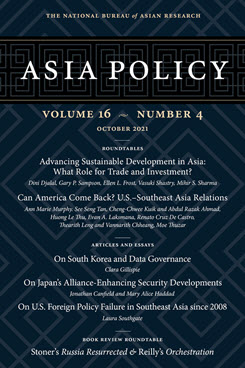Moving Beyond Disappointment
India, FDI, and Sustainability
This essay examines what lessons can be learned for sustainable finance from India’s recent history of foreign investment.
This roundtable was made possible by the generous support of the Hinrich Foundation.
EXECUTIVE SUMMARY
MAIN ARGUMENT
India has not increased its share of FDI in recent years as much as has been hoped. Risks for FDI continue to be high, especially due to growing economic nationalism and flawed dispute resolution mechanisms. The destinations for the investment India receives are strongly shaped by the risk perceptions of foreign investors—they prefer the stock market, services sector, and projects with minimal upfront investment and no political exposure. This has hindered the government’s attempts to mobilize investment into the manufacturing sector and has negative implications also for sustainable finance. Most green infrastructure projects in India, or those related to sustainable development, do not fit the risk profile preferred by foreign investors. Thus, judging by India’s recent history with FDI, energizing sustainable finance into India will require deeper reform.
POLICY IMPLICATIONS
- The Indian government will have to bring its actual regulation of foreign investment closer to its welcoming rhetoric to improve the climate for FDI.
- To attract greater levels of investment, attempts to favor “Indian” companies over others in various sectors must end.
- Dispute resolution mechanisms must be reformed to encourage FDI—both by expanding capacity in India’s judicial system and by accepting international arbitration awards.
- Sectors in India crucial to sustainable and greener development, such as renewable energy and green infrastructure, will need to be ring-fenced from political risk.
Mihir S. Sharma is the Director of the Centre for Economy and Growth at the Observer Research Foundation (India).
About Asia Policy
Asia Policy is a peer-reviewed scholarly journal presenting policy-relevant academic research on the Asia-Pacific that draws clear and concise conclusions useful to today’s policymakers. Asia Policy is published quarterly in January, April, July, and October and accepts submissions on a rolling basis. Learn more


